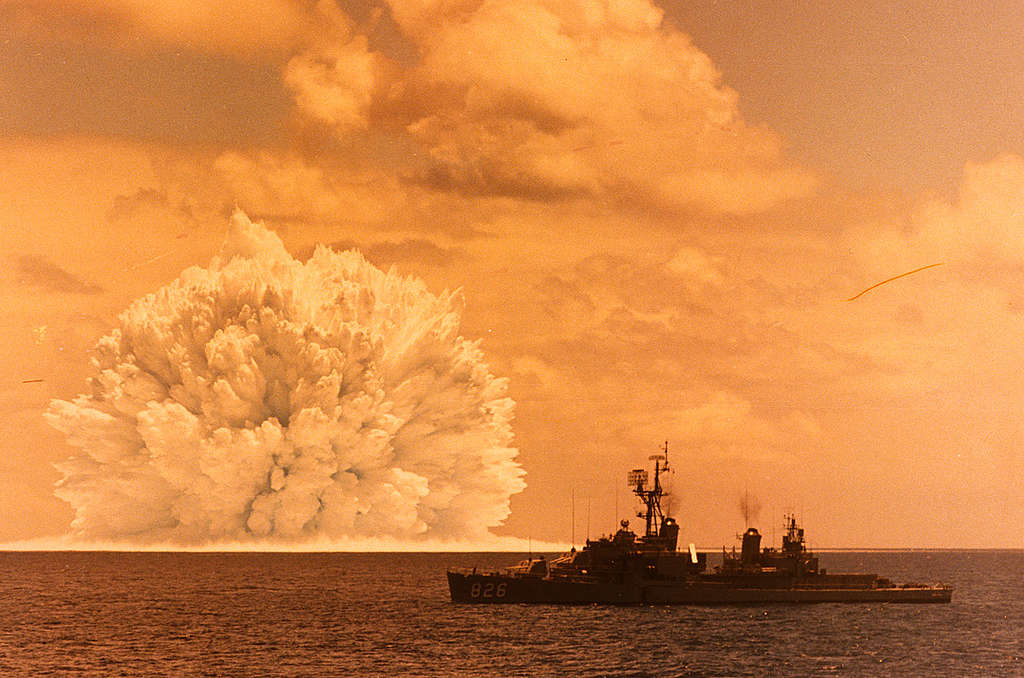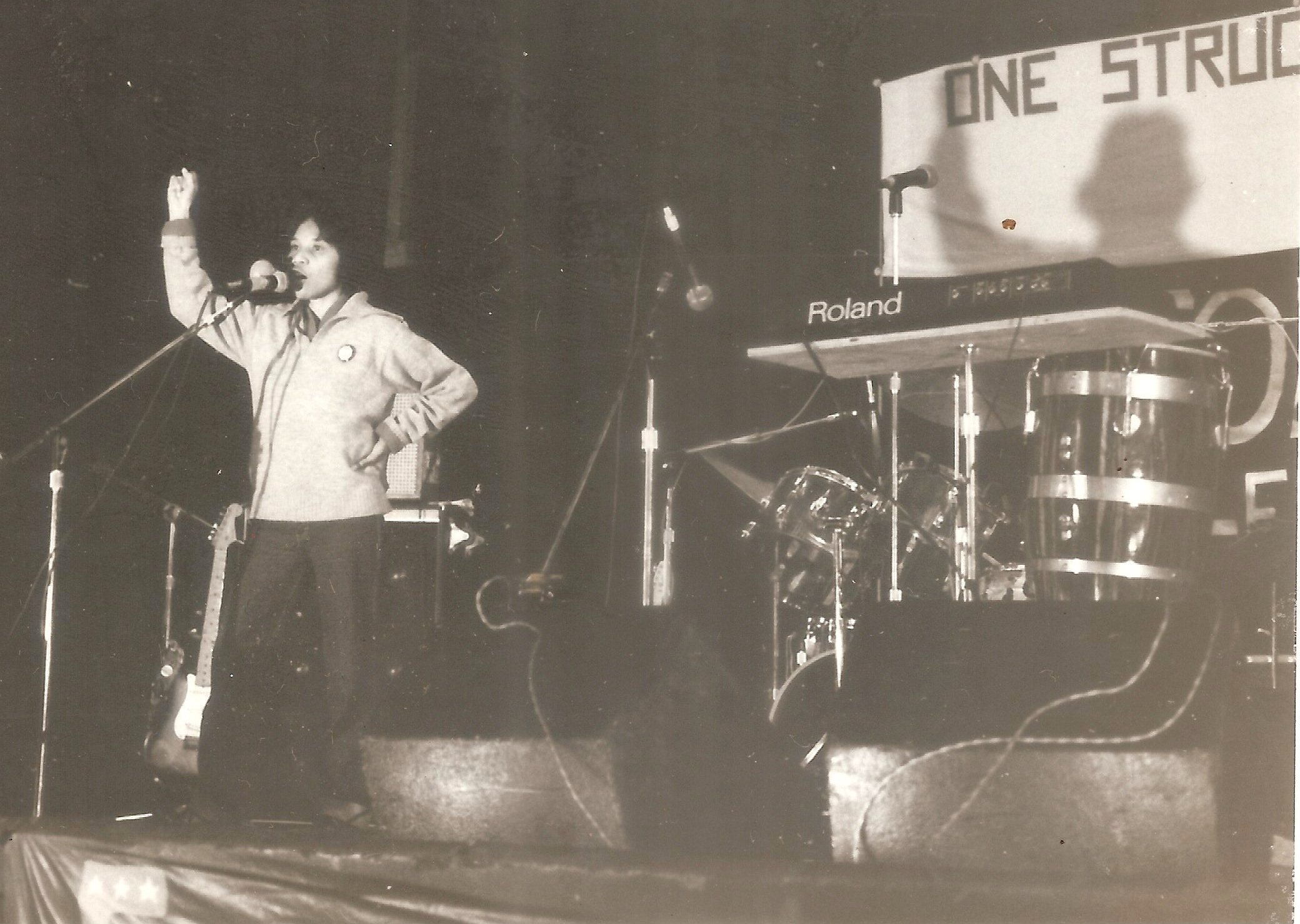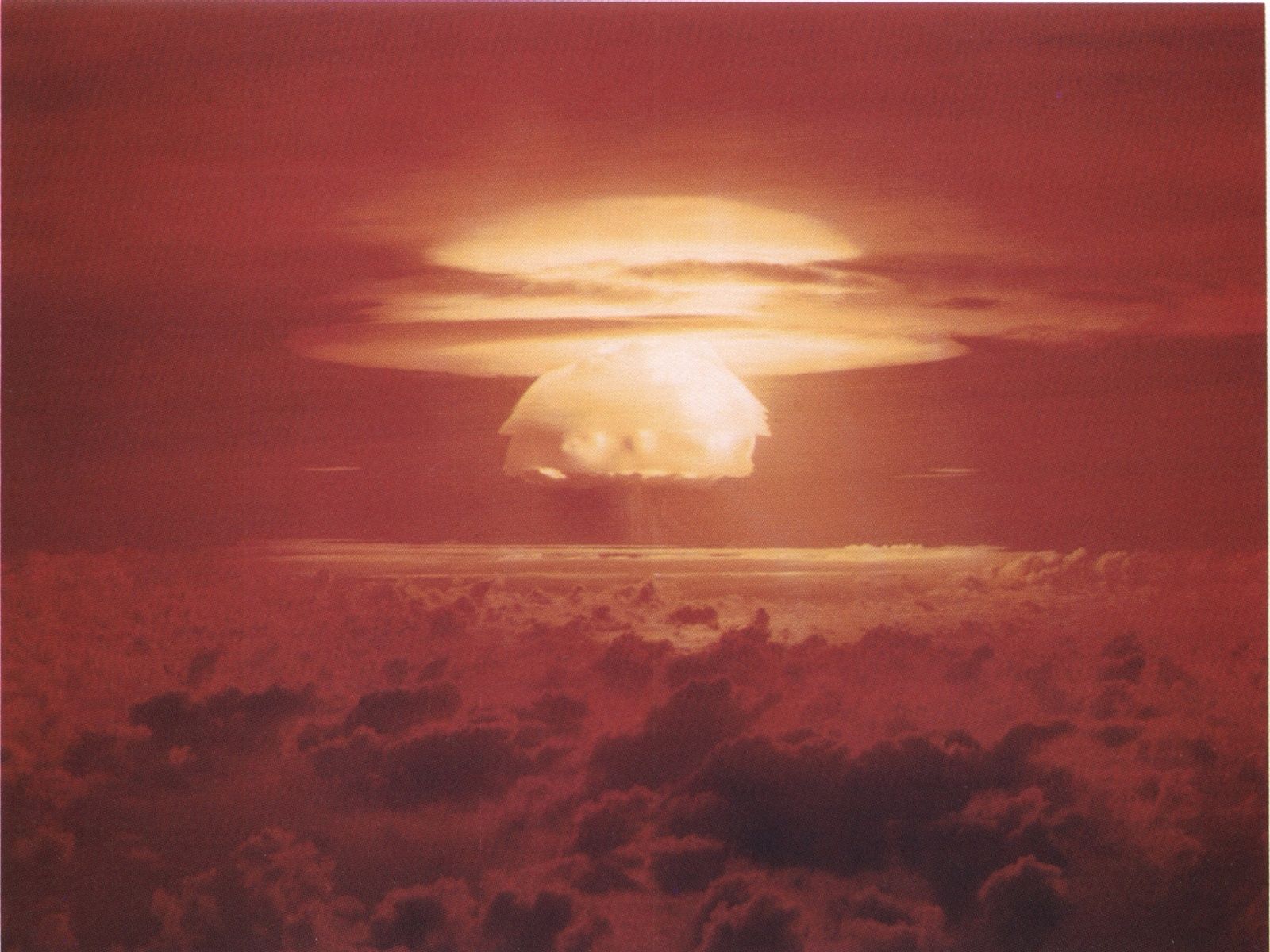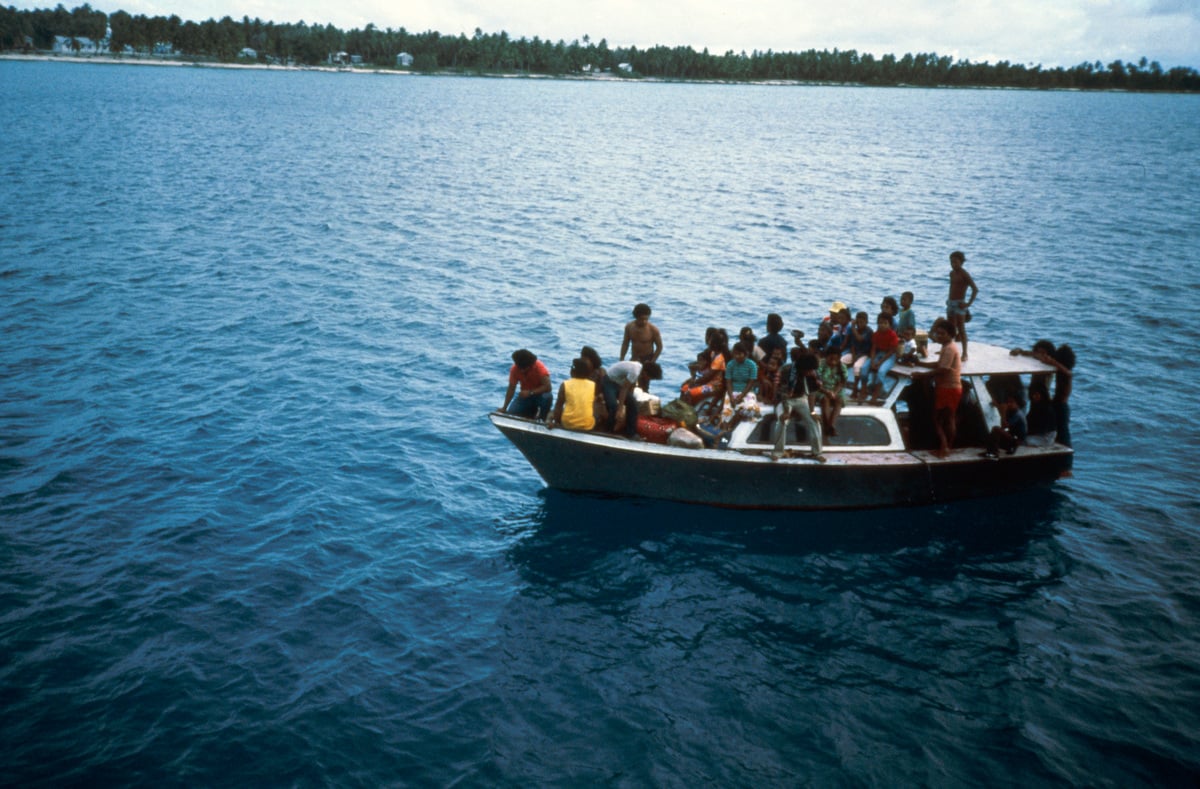Nuclear arms are the most destructive, indiscriminate and monstrous weapons ever produced – but today, we can all celebrate a major milestone in the long march towards peace: the Treaty on the Prohibition of Nuclear Weapons (TPNW) is now part of international law!

(US Navy / public domain) © US Navy / public domain
The year 2021 also marks the 50th anniversary of Greenpeace, which began life in September 1971 when a small group of activists set sail to the island of Amchitka, off the west coast of Alaska, to try and stop nuclear weapons testing from taking place. Greenpeace could not be more delighted that in the anniversary year of our founding journey, we can join the celebration to mark this historic Treaty coming into force and pay our deepest respects to advocates for this momentous achievement, led by the International Campaign to Abolish Nuclear Weapons (ICAN).
Greenpeace France interviewed Jean-Marie Collin of ICAN France about the challenges and prospects that arise from the Treaty’s entry into force.
The Treaty on the Prohibition of Nuclear Weapons is entering into force. How did we get to this point?
Nuclear weapons were first used in 1945 with catastrophic outcomes. Since then, they have remained a major threat to humanity. Civil society has been campaigning against them ever since but progress has been slow. In 2010, ICAN started working with some governments to promote a process at the UN to negotiate a legally binding instrument to ban nuclear weapons. On 7 July 2017, an overwhelming majority of States (122) adopted the TPNW. By 24 October 2020, 50 countries signed and ratified it which ensured the Treaty enters into force 90 days later. So today, 22 January 2021, nuclear weapons become illegal!
The first assembly of the state parties will be held in the next 12 months, probably in Austria.
What does the Treaty’s entry into force mean? What will change, and what won’t?
Nuclear weapons have always been immoral. Now, they are also classified as illegal, just like chemical and biological weapons. This is a major shift as it will bring about a change in the public perception of these weapons. The TPNW is not symbolic. Rather, it is binding given the many forms of prohibition (production, possession, use, transfer, threat of use, etc.) established.
What are the repercussions for the nine nuclear armed states (US, UK, Russia, France, China, India, Pakistan, Israel and North Korea)?
None of the nuclear armed states have signed the Treaty. They have even tried, unsuccessfully, to block it. As long as they refuse to sign, the Treaty does not apply to them directly – but it does make it much harder for them to justify their opposition. They can expect to face increasing international criticism, as well as internal political pressure.
The Treaty will also have a significant impact on financial institutions (pension funds and banks) because the Treaty also bans the financing of nuclear weapons systems. By investing in nuclear arms, these institutions have played a major role in the threat of a nuclear Armageddon. They will now have to choose to endorse or reject this new standard: if they decide to reject it, they run the risk of tarnishing their image and becoming unpopular with their clients. Financial bodies of countries (Germany, Japan, the Netherlands and Sweden, for example) which do not support the TPNW have already made the decision to disinvest, which demonstrates the extent of the Treaty’s impact.
What are the ICAN’s priorities now that the Treaty is entering into force?
Our key priority is to continue making the Treaty as universal as possible by getting as many states to sign and ratify it, increasing its legal influence. Monitoring its implementation will also be a very important task as it is a means of demonstrating its effectiveness. Lastly, public opinion is critical! In Europe, thanks to the campaigning of ICAN partners, we are already seeing an increase in the number of people supporting the Treaty (for example in Finland 84% support it; in Belgium 77%). Work on this is critical and the more people putting pressure on their governments to sign the Treaty, the stronger it will become.
Jean-Marie Collin is a spokesperson for ICAN France.



